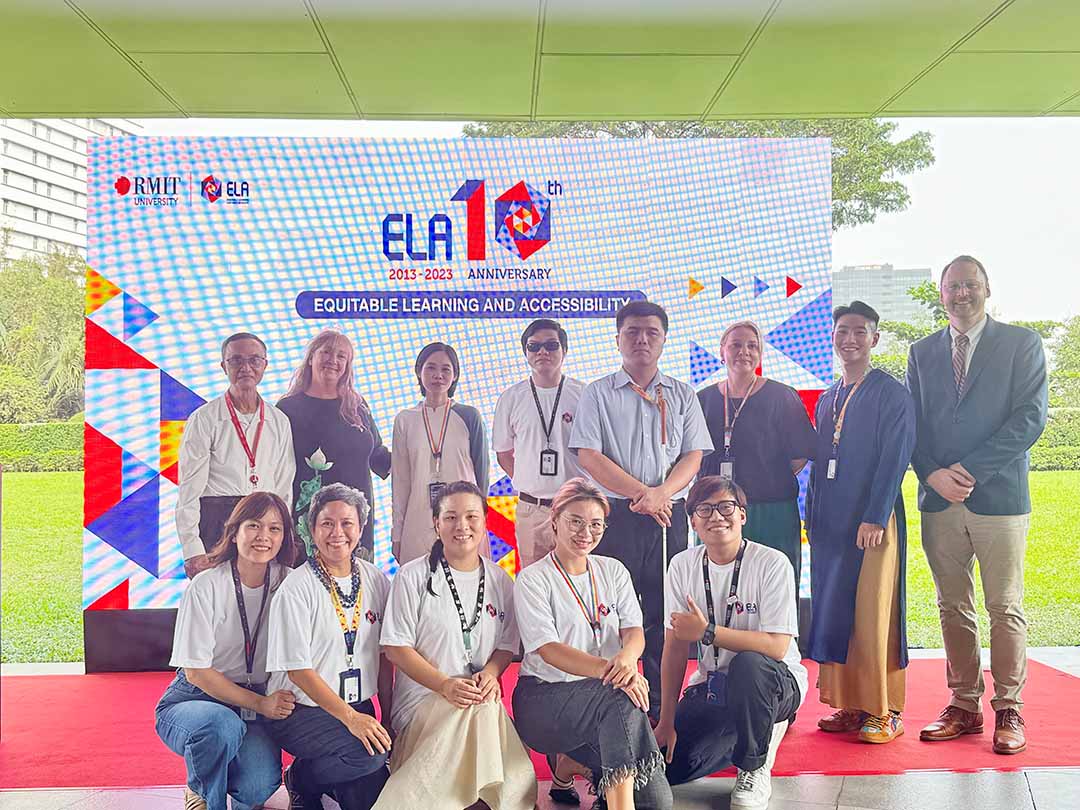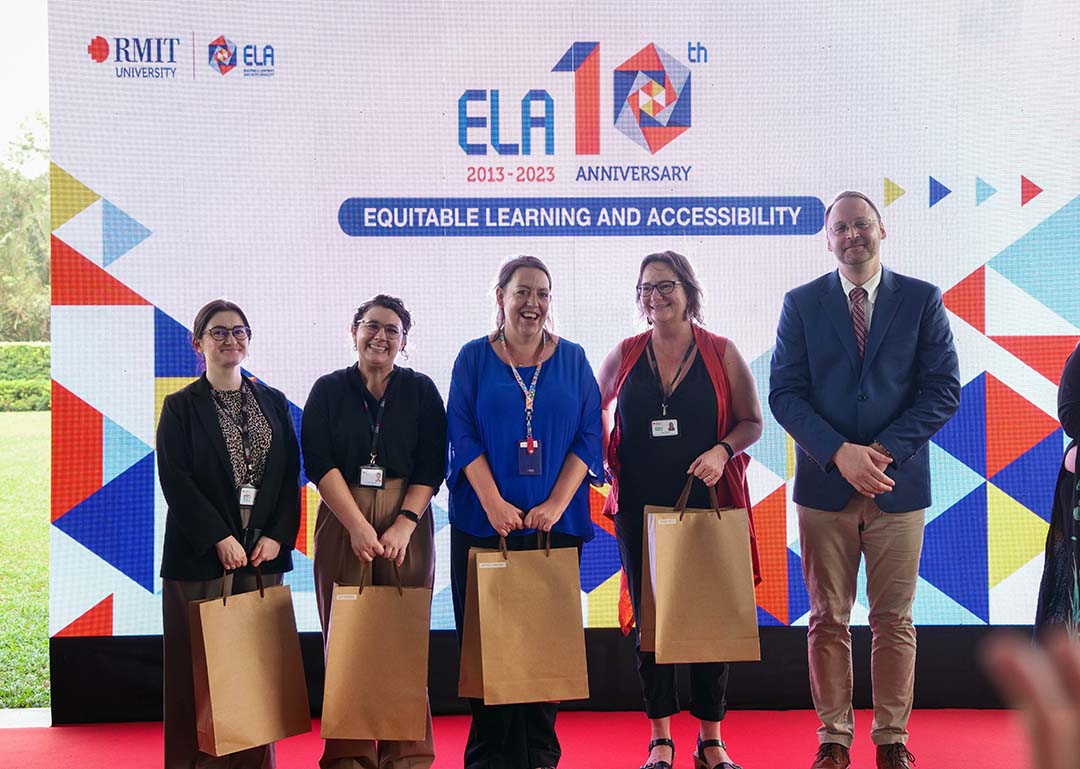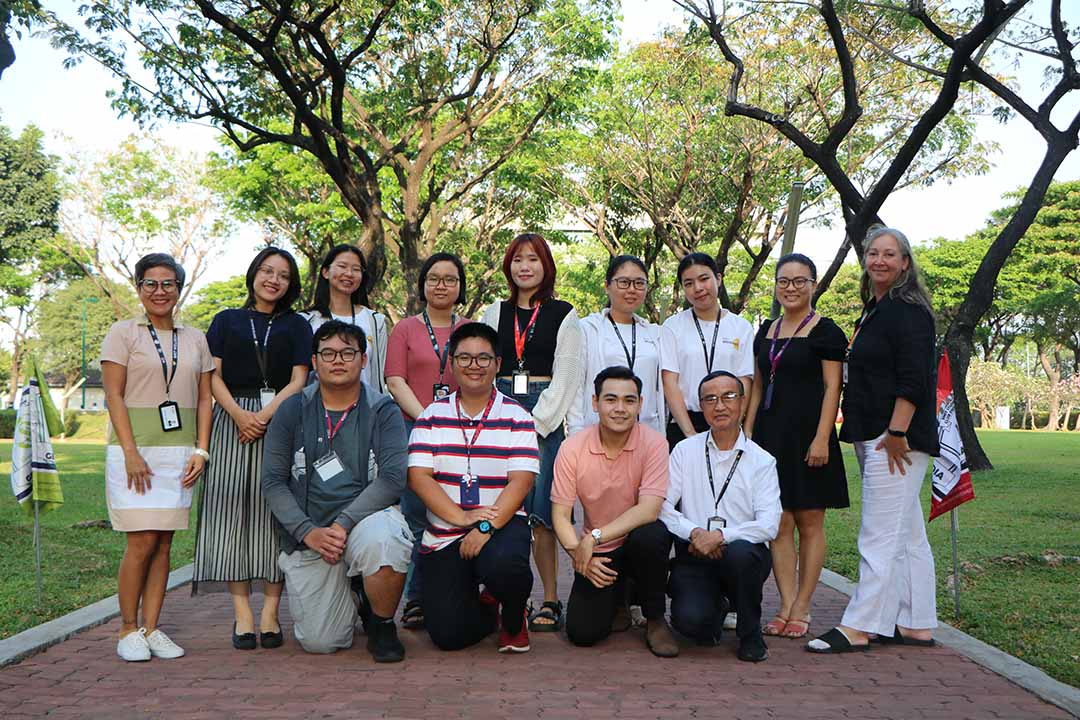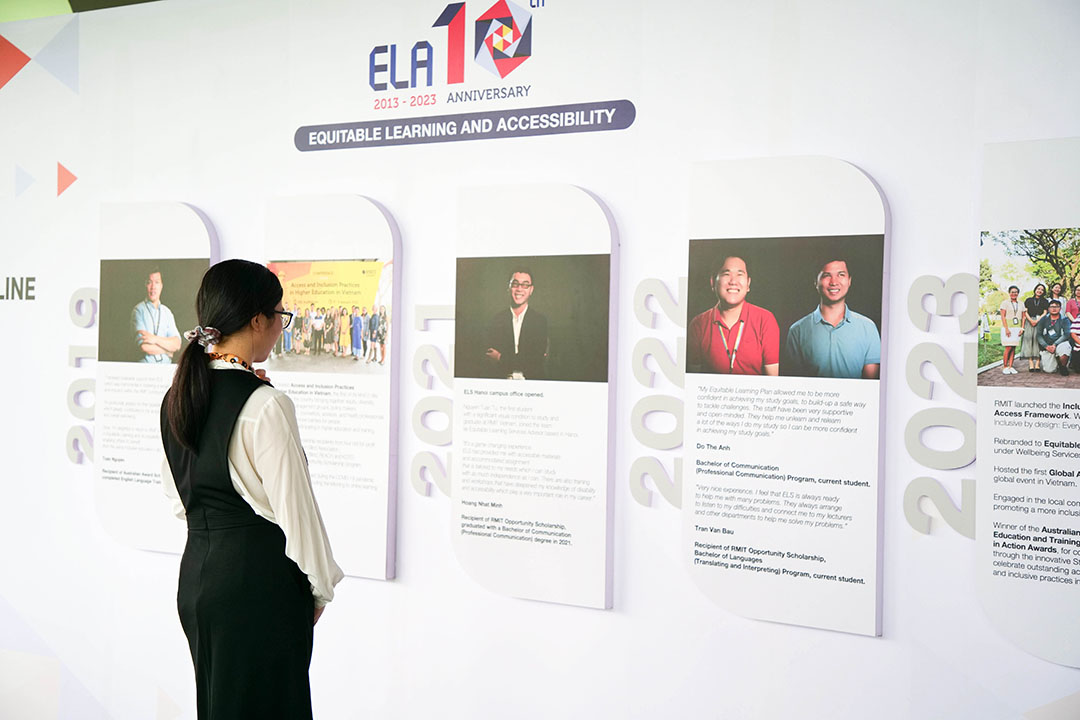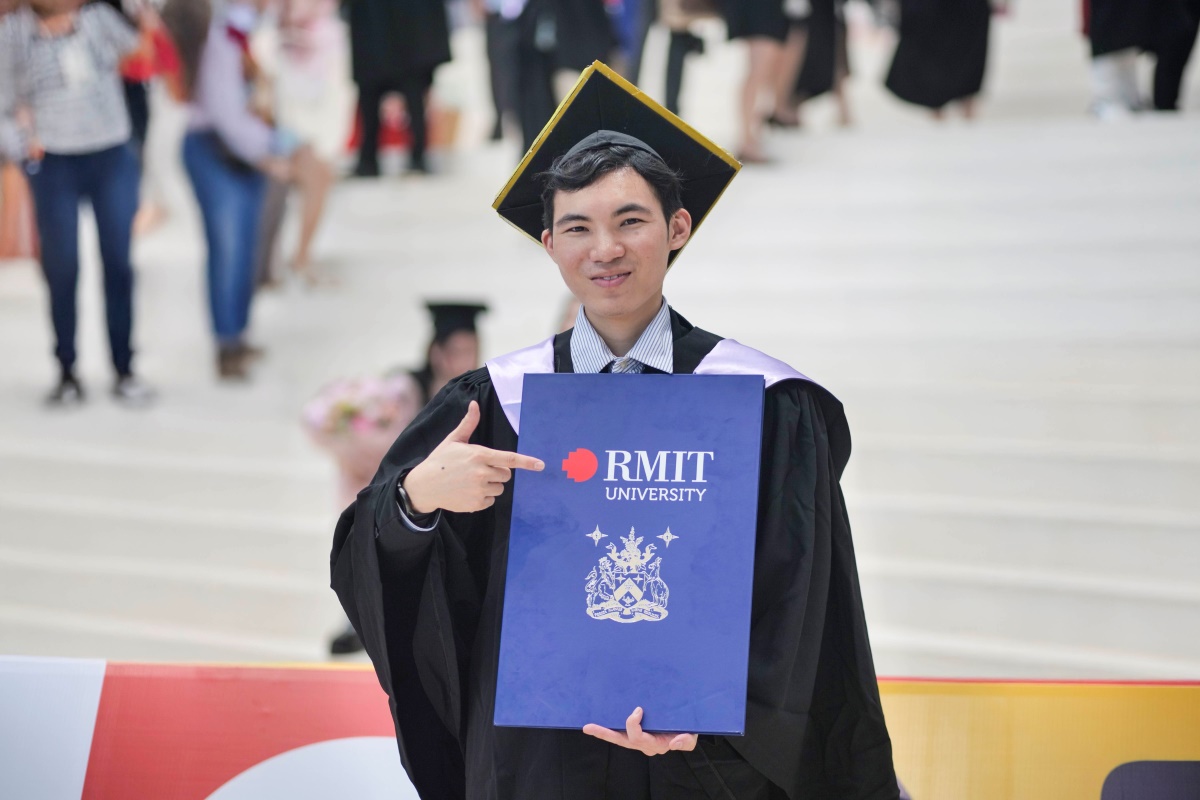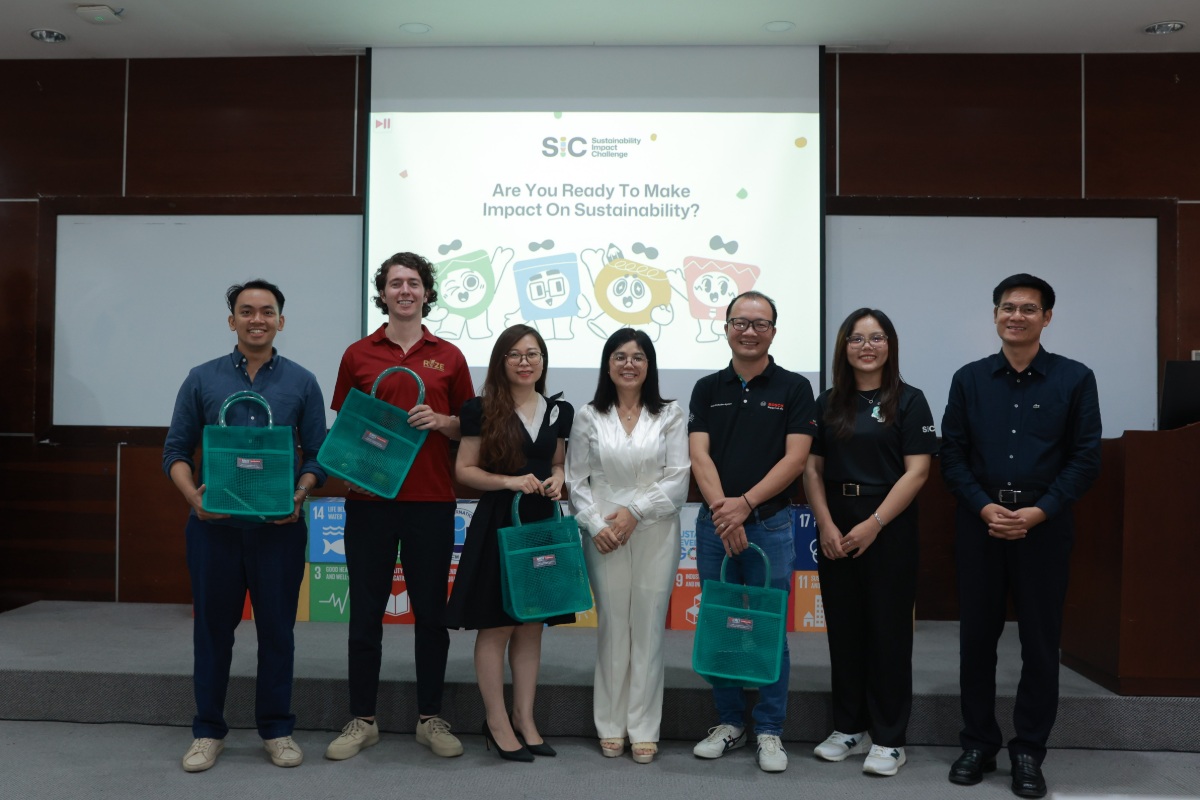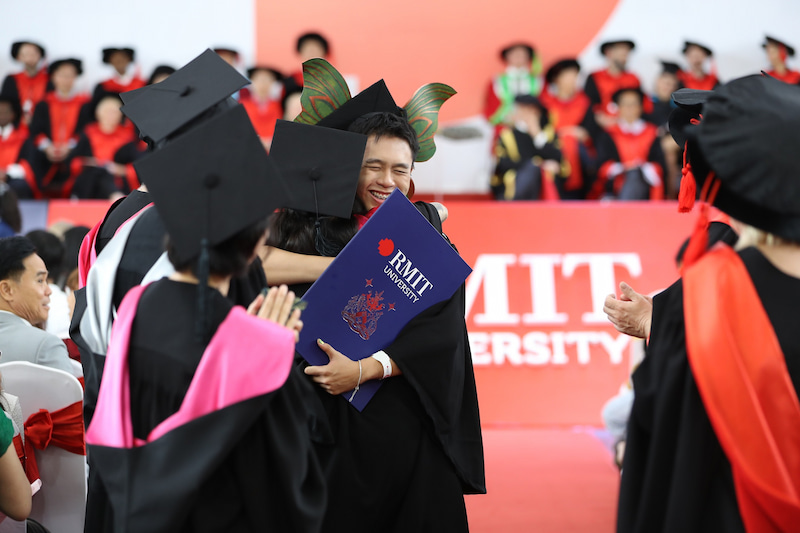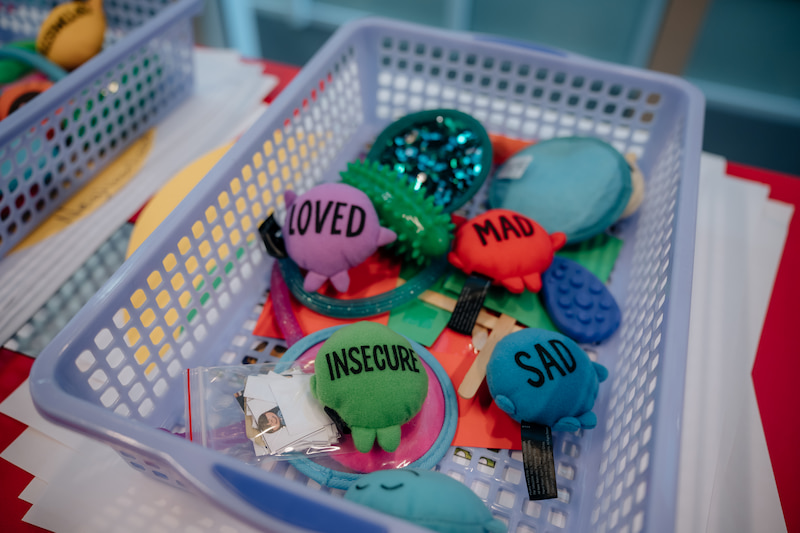The service was renamed Equitable Learning Service (ELS) in 2016 and joined the University’s Wellbeing to complete the holistic support it has been offering to students so that they can progress successfully.
It has been going strong with about 100 registrations each semester across Saigon South and Hanoi campuses since 2015. Its beneficiaries have expanded to include not only the recipients of RMIT Vietnam’s Opportunity Scholarship but also students who are neurodiverse or living with disability, mental condition, a long-term health concern or having carer responsibilities impacting their educational participation.
“It’s important to note that 20 percent of registered students have a complex condition, meaning they may have more than one diagnosis.
“These figures highlight the diversity of health challenges and conditions students face.
“It is crucial to pay attention to mental health and neurodiversity to ensure that appropriate support systems and adjustments are in place. By doing so, we can create an inclusive environment that recognises and responds to the unique needs of each student, fostering a more equitable and supportive learning community. Addressing these conditions not only enhances the educational experience but also contributes to the overall wellbeing and success of the students,” said Ms Witney.
ELS has worked with schools and departments, including the School of English and University Pathway (SEUP), to ensure the equitable learning plans are followed and teachers have support to make adjustments to their classrooms, lessons, materials and assessments. Since 2016, SEUP has had two designated teaching staff as ELS Liaisons, enhancing the service’s reach and efficiency.
SEUP Educator and Equitable Learning and Accessibility Liaison, Keiran Rossteuscher said all of the School’s core curriculum materials are accessible, and teachers receive training in how to make their own materials accessible.

